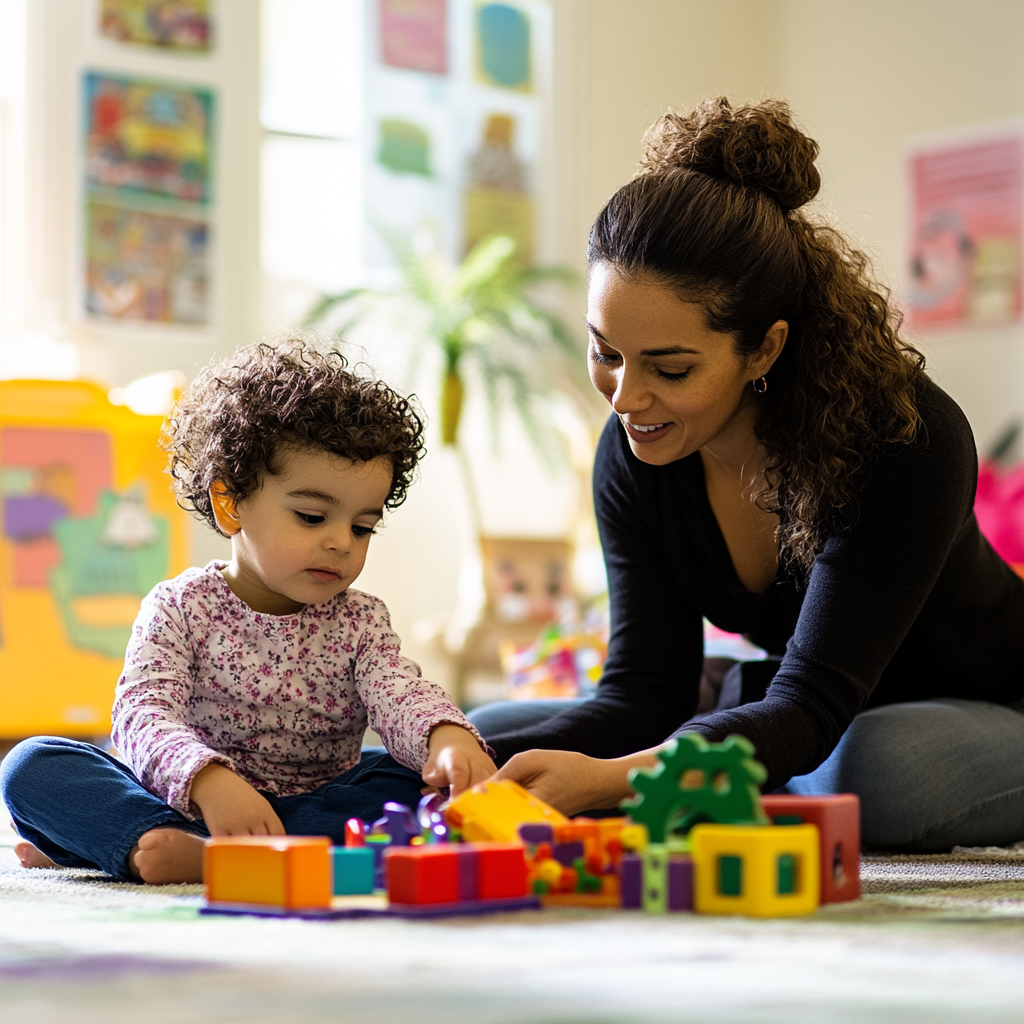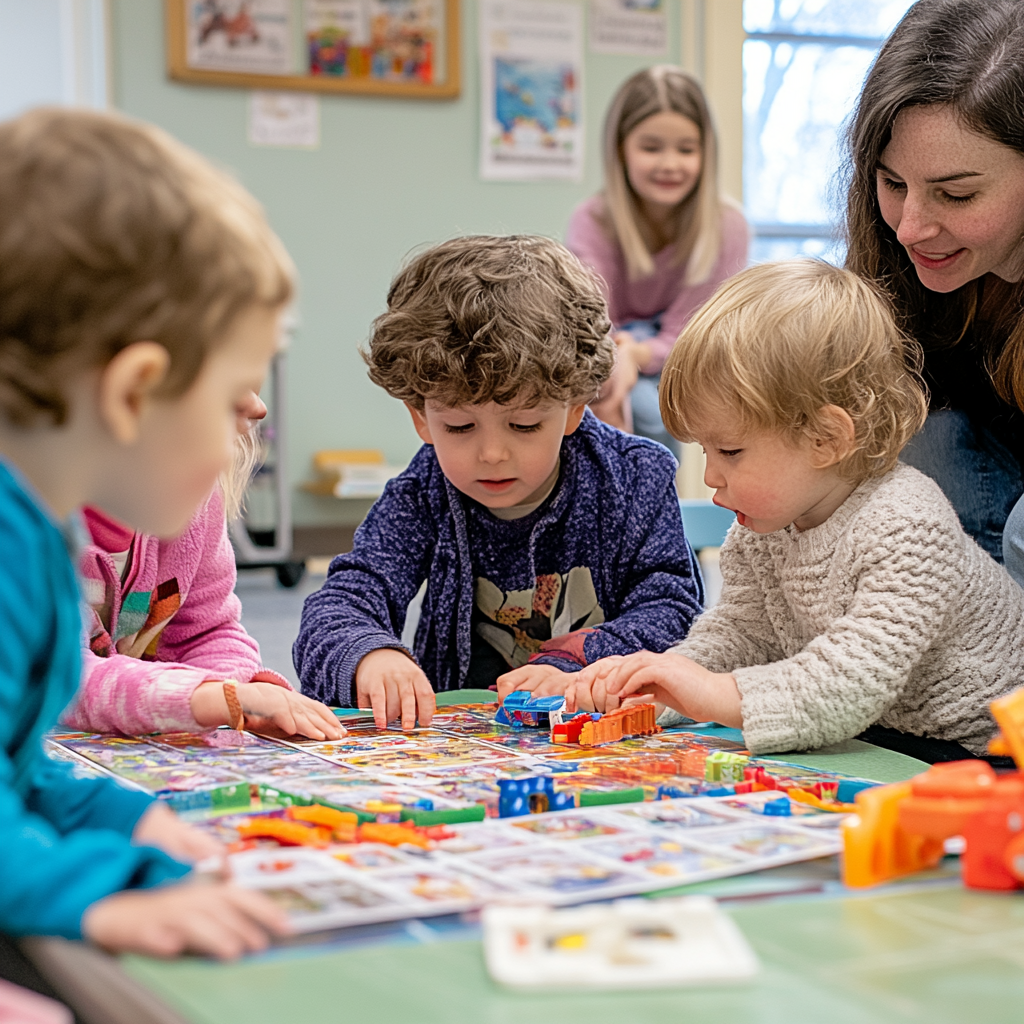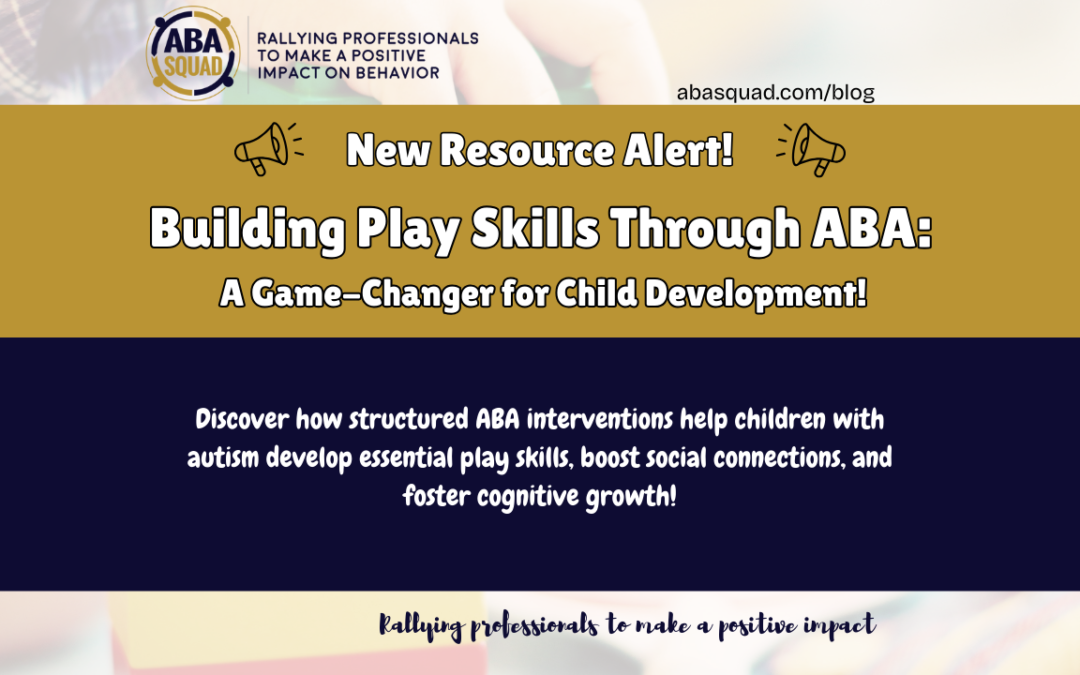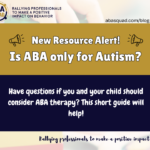Understanding Different Types of Play

Play is a crucial part of child development, and in Applied Behavior Analysis (ABA), it is a powerful tool for enhancing social skills, communication, and cognitive development. Understanding the different types of play is essential for structuring effective interventions.
Functional Play
Functional play involves using toys or objects as they are intended. For example, a child rolling a toy car on the floor or stacking blocks demonstrates functional play. This foundational play type builds essential skills and supports cognitive and social development in young children.
Constructive Play
Constructive play involves creating or building something using blocks, clay, or drawing tools. It fosters problem-solving skills, creativity, and fine motor development. Teaching play skills through ABA often incorporates constructive play to improve engagement and learning experiences.
Symbolic Play
Symbolic play, or pretend play, involves using objects to represent something else, such as pretending a banana is a phone. By encouraging children to create play scenarios and engage in imaginative activities, symbolic play supports language development, social skills, and cognitive abilities.
Social Play
Social play involves direct interaction with peers, such as turn-taking games, group activities, and role-playing. Developing social play is critical for social engagement and improving communication skills, especially for autistic children who may struggle with cooperative play and shared activities.
Unoccupied Play
Unoccupied play occurs when a child observes their surroundings without actively engaging in play. While it may seem passive, this play type is essential for exploring and understanding social cues. ABA professionals use structured interventions to encourage engagement and facilitate progression toward more interactive play types.
Assessing Current Play Skills
Behavior analysts conduct assessments before implementing play-based ABA therapy to understand a child’s play skills. This includes direct observation of playtime, identifying the child’s interests, and evaluating play development in structured and unstructured environments. Assessing early signs of social engagement, solitary play, and parallel play helps ABA therapists design individualized treatment plans.
Setting Goals for Play Skill Development
Setting manageable steps for play skill development ensures that each child progresses at their own pace. Goals are created based on a child’s unique needs, focusing on increasing positive behaviors, reducing challenging behaviors, and enhancing social connections. Foundational skills, such as initiating play, maintaining engagement, and following social cues, are targeted to support the child’s ability to participate in play sessions.
Strategies for Teaching Play Skills through ABA

ABA techniques offer structured approaches to teaching essential play skills. Several methods encourage a child’s development through enjoyable activities.
Discrete Trial Training (DTT)
DTT is a structured approach that breaks down play skills into small, teachable units. The therapist provides explicit instructions, prompts the child if necessary, and reinforces the correct response. This method is effective for teaching desired play behaviors in therapy sessions.
Natural Environment Teaching (NET)
NET focuses on teaching play skills in a child’s natural environment, using their interests to encourage learning. By integrating play into everyday activities, ABA professionals help children generalize skills across different settings and play experiences.
Video Modeling
Video modeling uses recorded demonstrations of play scenarios to teach children how to engage in specific types of play. This method primarily benefits children who learn best through visual aids and observation.
Peer-Mediated Instruction
This approach involves pairing a child with peers who model appropriate play behaviors. Social play and cooperative play improve as children observe and imitate positive behaviors from their peers.
Prompting and Fading
Prompting helps guide children toward appropriate play behaviors, while fading gradually reduces assistance, allowing the child to develop independent play skills. This method is widely used in structured play-based ABA therapy.
Reinforcement Techniques
Positive reinforcement is essential for encouraging play skill development. Preferred activities, praise, and tangible rewards motivate children to engage in desired play behaviors. To maximize effectiveness, reinforcement strategies should be tailored to a child’s interests and individual needs.
Pivotal Response Training
Pivotal Response Training (PRT) is a child-led, naturalistic intervention focusing on key developmental areas such as motivation, social interactions, and self-initiation. It incorporates play into structured therapy sessions to teach communication skills and positive behaviors. By motivating children with their own toys and interests, ABA therapists create engaging learning experiences that encourage active participation.
Reinforcement Techniques
Positive reinforcement is essential for encouraging play skill development. Preferred activities, praise, and tangible rewards motivate children to engage in desired play behaviors. To maximize effectiveness, reinforcement strategies should be tailored to a child’s interests and individual needs.
Data Collection and Progress Monitoring
ABA professionals collect data on play skill development through direct observation and structured assessments. Tracking progress helps adjust treatment plans and ensures that interventions lead to significant improvements in a child’s play behavior.
Tips for Parents and Caregivers
Parents play a crucial role in reinforcing play skills outside of therapy sessions. Creating a supportive environment, engaging in structured and unstructured play, and modeling social interactions help strengthen a child’s play skills. Encouraging shared activities and using play scripts can further support social engagement.
Case Studies and Success Stories
Real-life examples of play skill development through ABA highlight the positive impact of intervention. Success stories demonstrate how structured approaches, individualized support, and reinforcement techniques help children improve play interactions, problem-solving skills, and overall development.
Common Challenges and Solutions
Teaching play skills can present challenges, such as limited interest in play, difficulty engaging with peers, or challenging behaviors. ABA therapists use effective strategies to address these challenges, such as modifying play scenarios, using visual supports, and implementing individualized reinforcement plans.
The Role of Play in Social Skills Development

Play is a powerful tool for teaching social skills, communication, and emotional development. Children learn to interpret facial expressions, understand social cues, and build meaningful relationships through structured interventions. The ABA program plays a crucial role in helping children navigate social interactions and engage in group activities.
Building Blocks of Play-Based ABA Therapy
Building play skills through ABA involves breaking complex behaviors into small, teachable units. By focusing on the building blocks of play, ABA therapists help children develop turn-taking skills, cognitive abilities, and problem-solving skills. These foundational skills are essential for overall development and social engagement.
Language Skills and Play
Language development is closely linked to play, as children learn to communicate their thoughts, emotions, and desires through play-based interactions. ABA professionals use structured activities, visual aids, and direct instruction to enhance language skills during play sessions. Encouraging children to express themselves through pretend play and role-playing games strengthens their communication abilities.
Leisure Activities and Play Development
Incorporating leisure activities into ABA therapy helps children explore new interests, develop independence, and improve social interactions. Activities such as arts and crafts, music, and outdoor play create enjoyable experiences that enhance engagement and learning. ABA professionals tailor leisure activities to match a child’s needs and preferences, ensuring they remain motivated and involved.
Mental Health and Play Therapy
Play is essential for learning, mental health, and emotional well-being. Structured play activities help children manage stress, build self-confidence, and develop coping mechanisms. Registered Behavior Technicians (RBTs) work closely with children to ensure play sessions promote cognitive development and emotional health.
Conclusion and Future Directions in Play Skills Training
Play-based ABA therapy continues to evolve, with research exploring innovative strategies to enhance skill development. Future studies may focus on the role of technology, such as virtual play scenarios and AI-driven social engagement tools, in improving play outcomes for children with autism spectrum disorder.
Support Groups and Forums
- Autism Play Therapy Support Network
- Parent Support Groups for Play-Based Interventions
By implementing evidence-based ABA interventions, children can develop essential play skills that enhance their overall development, build meaningful social connections, and lead to a brighter future.





